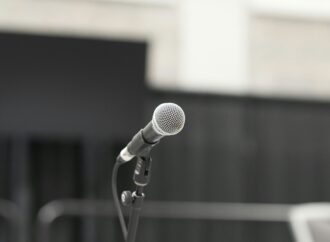Today’s the day. The day you get serious about your work, your studies, your finances, your health, your life. Commence adulting.
You start strong, like you always do. You set up your to do list. You make headway on a project.
But then, insensibly, as the day wears on, you start slipping. By the next day, you’re back to your usual routine. Instead of going to the gym in the morning, you spend an hour in bed scrolling through Facebook on your phone.
At the office, instead of, you know, working, you start the day with an hour on Reddit. At home, instead of pursuing that online side gig, or progressing through that Udemy course on Adwords, you binge-watch half a season of Luke Cage on Netflix and then go to bed way too late.
Why does this keep happening? Why can’t you ever get your butt in gear and keep it in gear? You know you’ll be happier, less stressed out, and headed toward a better life if you could just be more disciplined. So why can’t you act on that knowledge?
Who’s It For?
Here’s a question you might ask yourself. Who’s it for? The work, the learning, the exercise, the diet: all of the things you intend to do, but don’t. Who’s it all for?
“Myself, of course,” you might think. But is it really?
In elementary school, when you first learned to study and do desk work, who was it for then? It sure wasn’t for yourself. You were forced to do it. You did it for your teachers and parents.
When you first learned to eat healthy as a child, who was it for? That was probably also for your parents.
Sure your parents and teachers said it was “for your own good.” But they’d be lying if they said it was for your own chosen purpose.
Other-Discipline
Under the authority-based way children are raised, we all learned discipline through obedience. Obedience is not self-discipline. It is other-discipline. It is the discipline horses and dogs learn from their trainers and that slaves learn from their masters.
Many of us never truly learned self-discipline, but only other-discipline. Sure, some of the obedience-based habits we picked up stuck. But they start to fade as soon as we’re left without an authority figure. That’s why, even as adults, so many of us need the positive and negative reinforcement of bosses or instructors to keep us on task.
Even when real authority figures are not involved, we feel the need to create them in our minds. This is easy to do, because after a whole childhood and youth of constantly being judged by others, we have internalized our judges. That part of you that says, “I’m so stupid,” or “I’m so lazy,” when you don’t live up to certain standards is the spiritual residue (ghosts, if you will) of dozens of past authority figures.
Browbeating yourself into good behavior is not self-discipline either. It is obedience to the internalized expectations of others.
An Incentive Problem
Again, other-discipline is the discipline of the slave. Now, what does economics say about slave labor? As Ludwig von Mises wrote,
“If one treats men like cattle, one cannot squeeze out of them more than cattle-like performances.”
Slave labor is not only morally abhorrent, it is incomparably less efficient than free labor. That is because the incentives are radically misaligned. The slave does not benefit fully from his productive efforts. So he is rationally inclined to “shirk,” just as communist workers are inclined to slack off, because they are provided for according to their “need” and not according to their contribution.
Similarly, when performance in work and life is fundamentally for the sake of someone else (even if that someone else is an internalized authority figure), you too are rationally inclined to shirk.
That moment of resolve you had the other day was your inner classroom teacher fixing her gaze on you. To appease her, you obediently opened your workbook and started toiling. But as soon as her back was turned, you went back to goofing off.
True Self-Discipline
To achieve true self-discipline, you need an exorcism. You need to exorcise the ghosts of past taskmasters that are haunting your psyche. Your life’s endeavors need to become truly and deeply about you and for you.
In practice, this means you need to stop judging yourself: stop subjecting yourself to the withering judgment and debilitating authority of your internalized “other.” To paraphrase Mises, if you want more than cattle-like performance out of yourself, you need to stop trying to motivate yourself with the spiritual equivalent of a cattle-prod.
This is not to say you should stop assessing yourself. The difference between a self-judgment and a self-assessment is that the former has a moralistic, other-oriented flavor to it. A self-judgment says heatedly, “I’m weak and useless” or “I’m not contributing enough to society.” A self-assessment says, in a rational, cool, even detached tone, “I have goal X. I can advance toward that goal, if I adopt improvement Y. I did not adopt Y yesterday. Perhaps I can adopt Y today if I try Z.”
Only when you re-align your incentives by thoroughly making your efforts about your own purposes, instead of the internalized expectations of others, will you finally stop shirking and indulging in unhealthy habits, and finally start living a satisfying life of self-confidence, excitement, ongoing achievement, and continuous growth.
For more guidance on this truly self-oriented, non-judgmental approach to performance and growth, I highly recommend The Inner Game of Tennis by Timothy Gallwey. You do not need to play tennis (I don’t) to learn a tremendous amount from this book. It uses tennis to convey many universal principles.
—
This FEE article was republished under Creative Commons licensing.
[Image Credit: By Amila Tennakoon (Meditation Sri Lanka) [CC BY 2.0 (http://creativecommons.org/licenses/by/2.0)], via Wikimedia Commons]
















Leave a Comment
Your email address will not be published. Required fields are marked with *